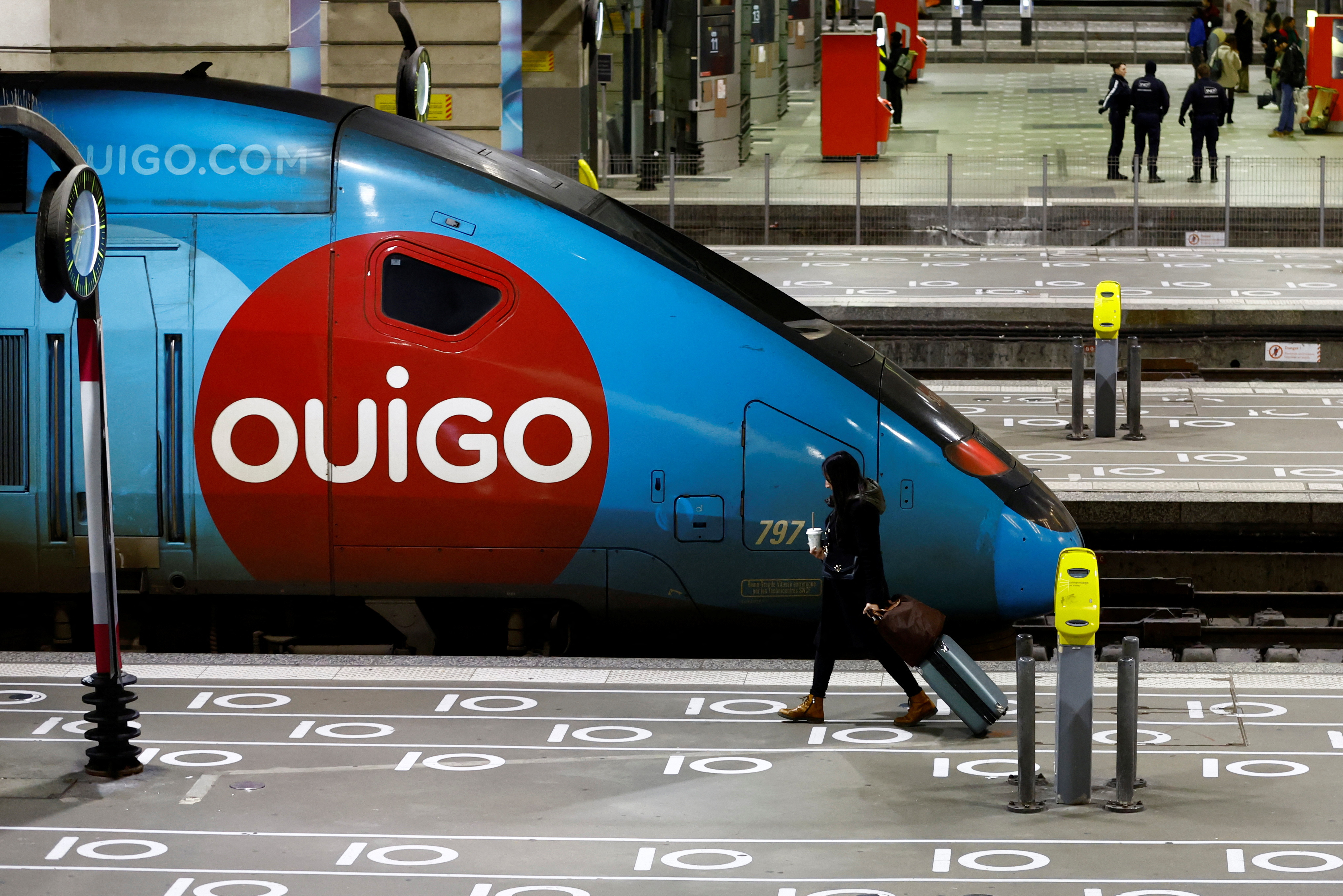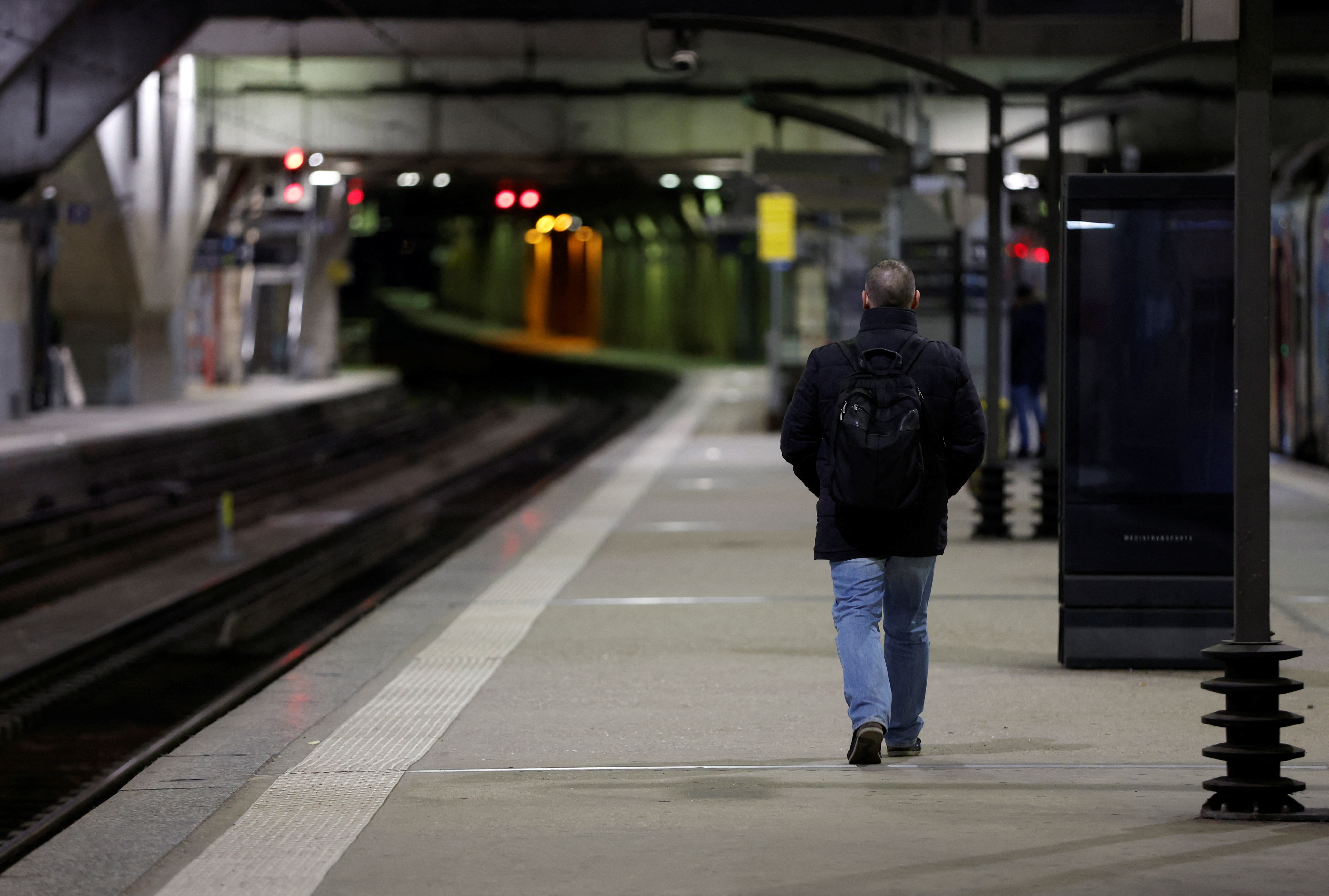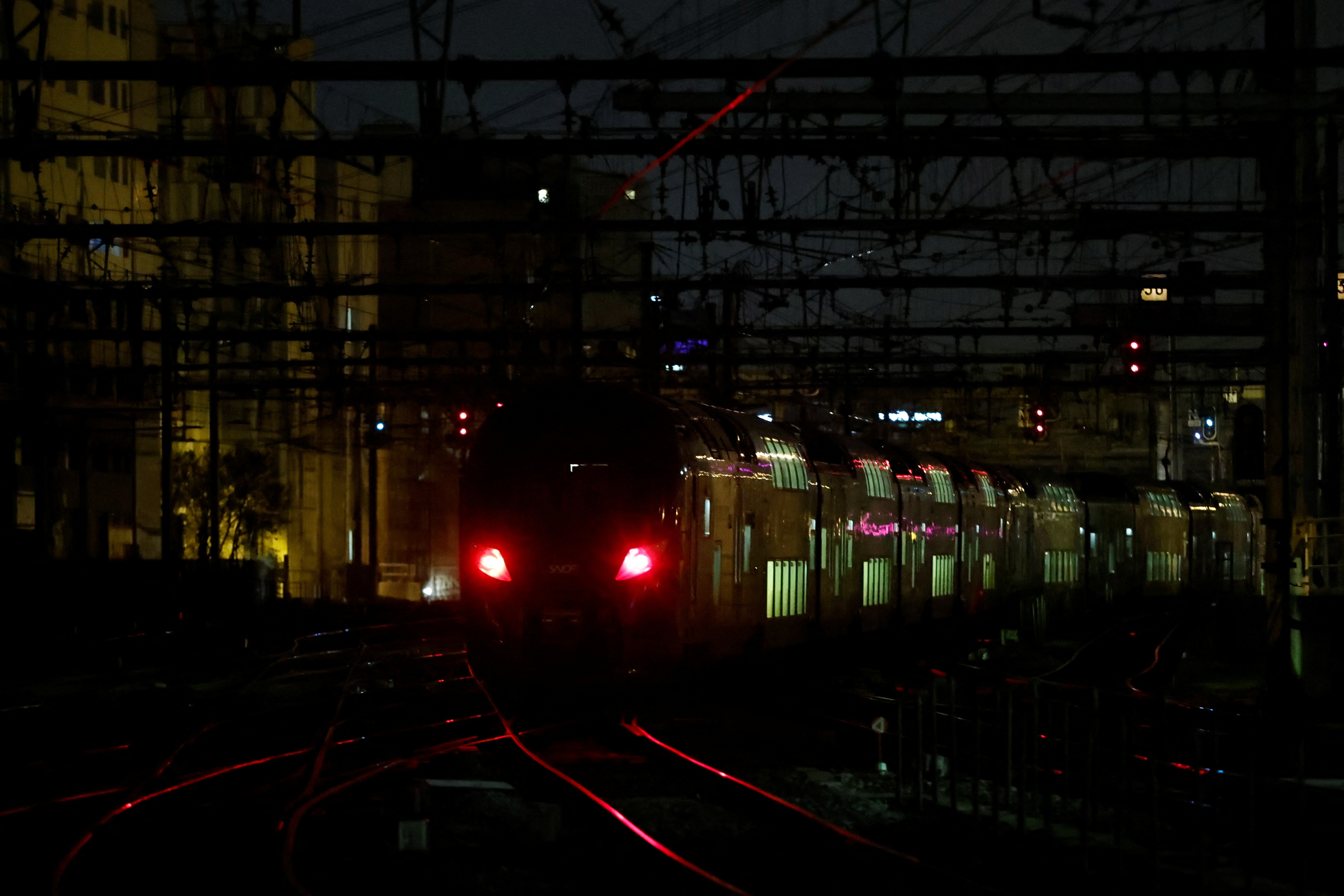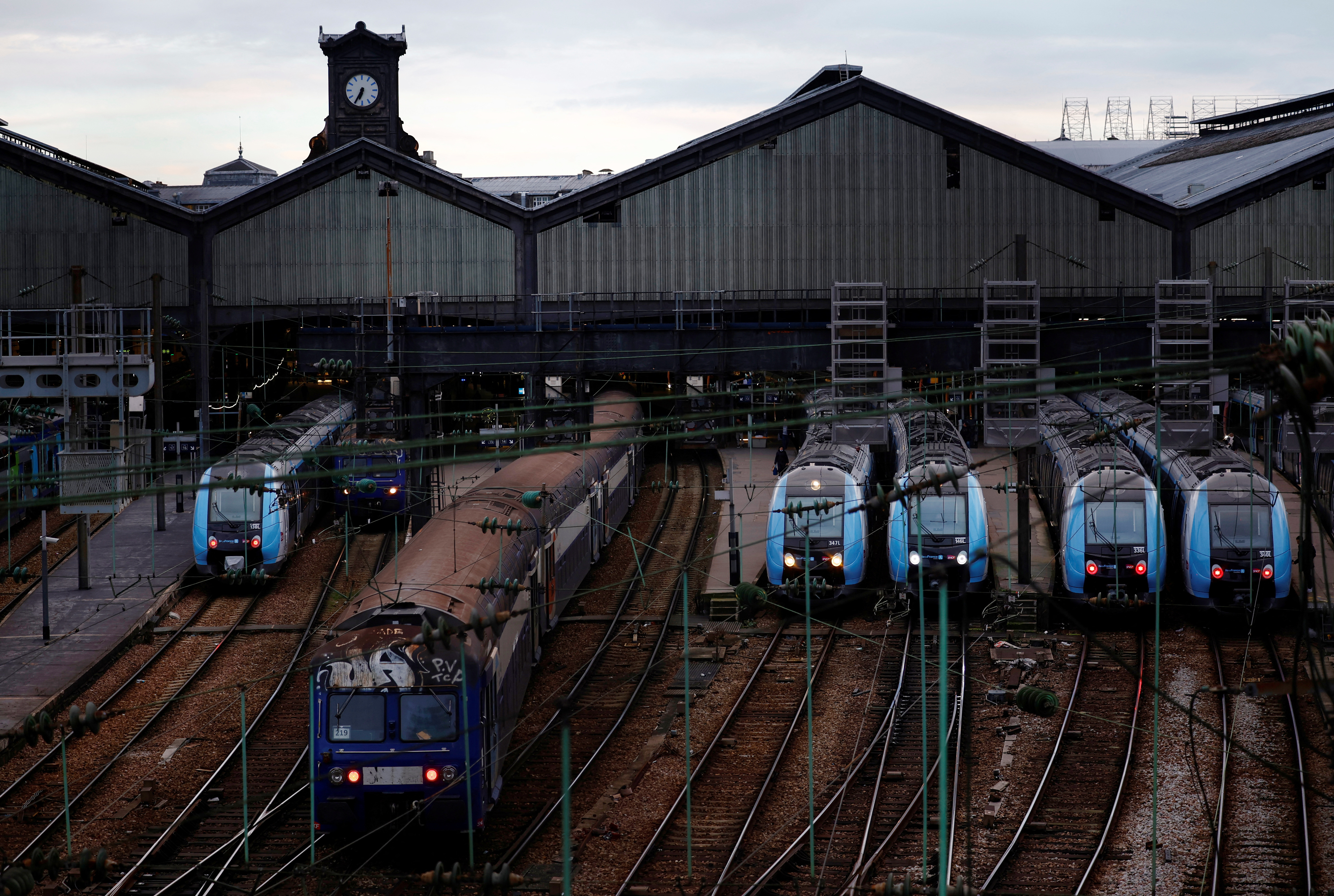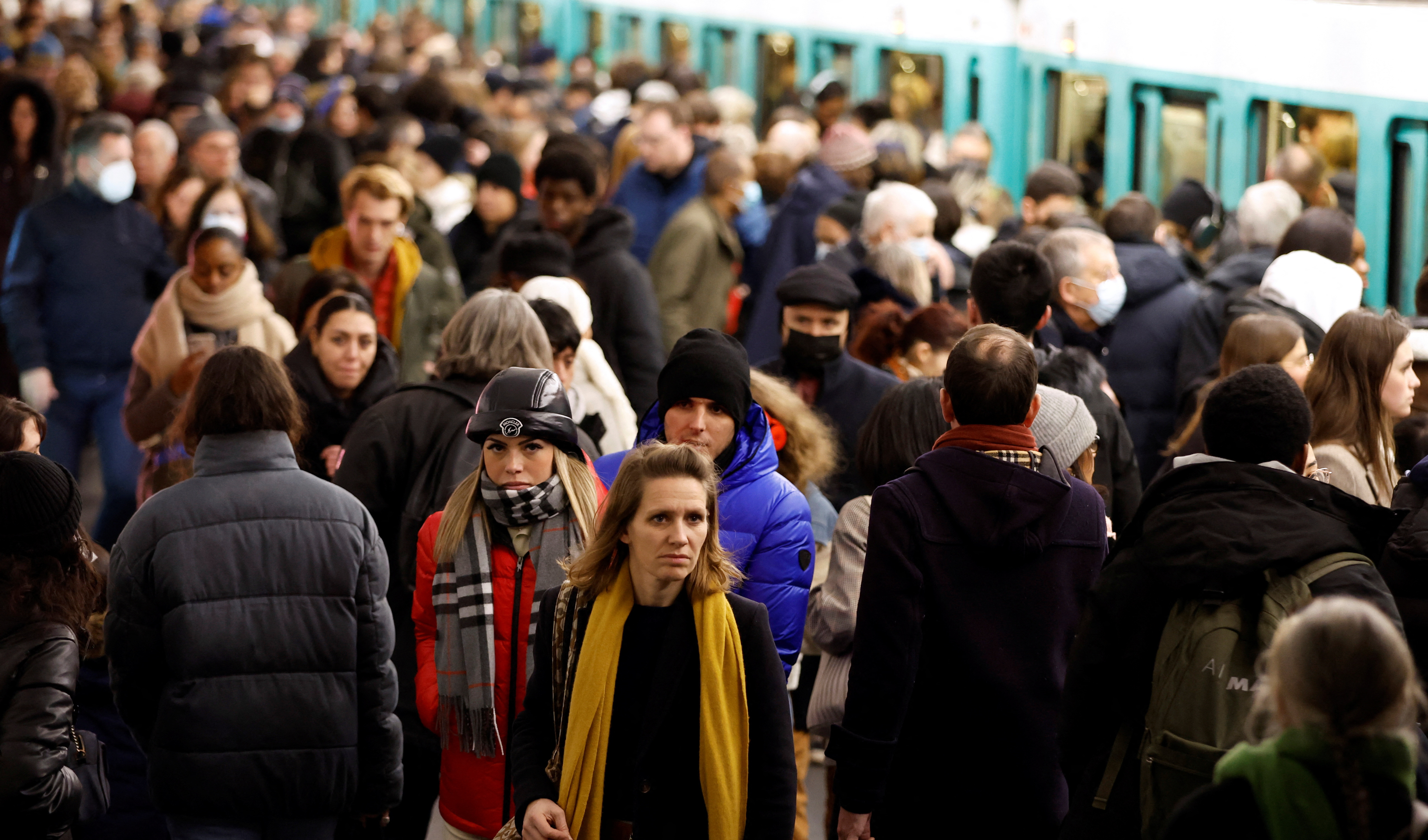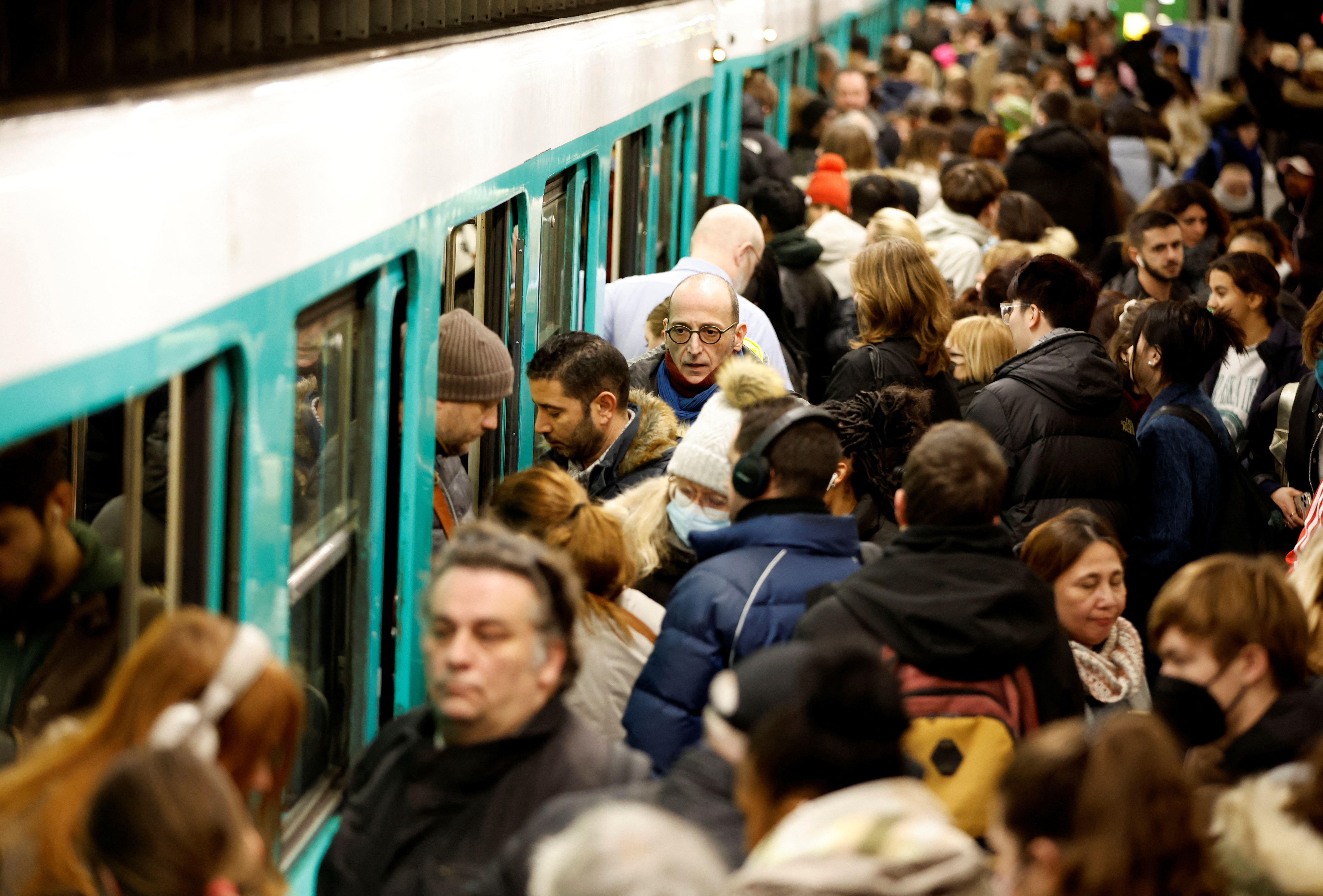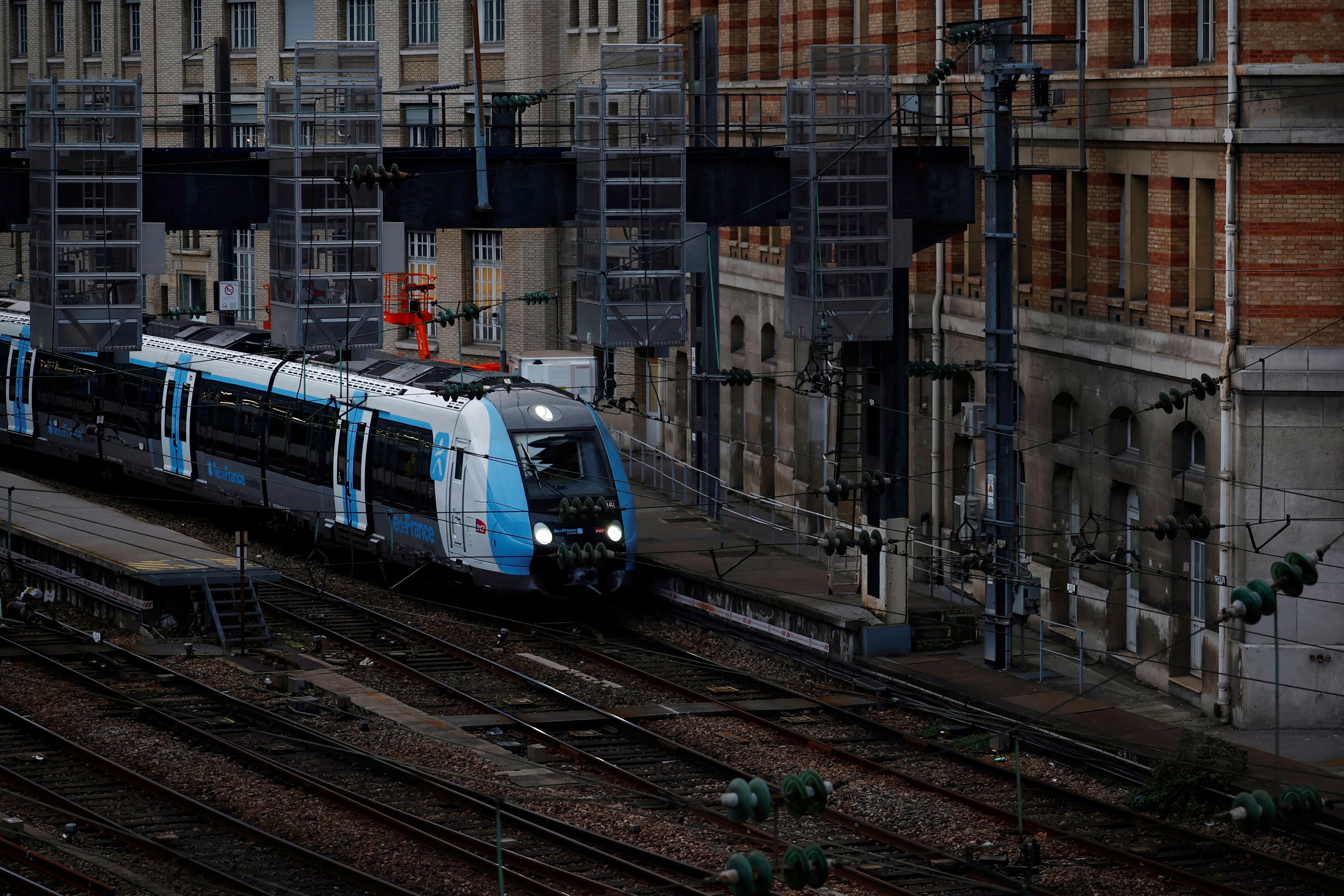Trains ground to a halt in France on Thursday, schools were shut and businesses disrupted as workers walked off their jobs in an attempt to derail a planned pension reform that would see the retirement age pushed up by two years to 64.
The nationwide day of strikes and protests is a major test for President Emmanuel Macron, who says his flagship reform is vital to ensure the pension system does not go bust.
Opinion polls show French voters overwhelmingly reject his plan to make them work longer.
“There’s nothing good in this reform,” said Rozenn Cros, in the southern French city of Cannes, as she and other teachers prepared for the strike, with banners including “No to 64.”
The challenge for unions, which are far less powerful in France than they used to be, is whether they can transform that opposition to the reform – and anger with a cost-of-living crisis – into a mass social protest that would last beyond Thursday and eventually get the government to back-track.
“This issue of pensions channels all the discontentment,” the leader of the hardline CGT union, Philippe Martinez, told Public Senat TV. “Today is going to be a very big day of mobilisation.”
For Macron, what is at stake is his reformist credentials, both at home and with his European Union peers, as well as keeping public spending in check.
Pushing back the retirement age by two years and extending the pay-in period would yield an additional 17.7 billion euros ($19.1 billion) in annual pension contributions, allowing the system to break even by 2027, according to Labour Ministry estimates.
Unions argue there are other ways to ensure the viability of the pension system such as taxing the super-rich or increasing employers’ contributions or those of well-off pensioners.
Unions have described the day as a starting point, with more strikes and protests to follow.
“What nobody can know, and even the unions don’t know is whether French people are cross enough to … block the country,” said Sciences Po professor Bruno Palier.
The reform still needs to go through parliament, where Macron has lost his absolute majority but is hoping to get it adopted with the support of conservatives.
Public transport was severely disrupted on Thursday.
Only between one-in-three and one-in-five high-speed TGV lines were operating, with barely any local or regional trains running, the SNCF rail operator said.
Some seven-out-of-10 primary school teachers have said they will strike, their main union said.
French power supply was reduced at eight nuclear reactors and at some hydropower plants due to the strike, utility group EDF said.
TotalEnergies’ chief executive Patrick Pouyanne said one day of strikes and protests will not disrupt refinery operations, but this could change if the strikes were to last.
Meanwhile, Macron and several of his ministers will be in Barcelona on Thursday for a meeting with the Spanish government.
($1 = 0.9246 euros)
Related Galleries:
